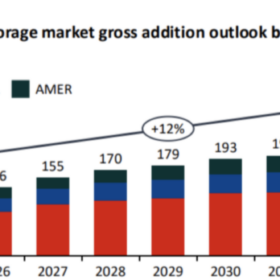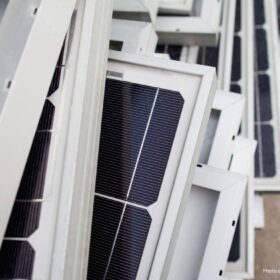International pioneering solar energy company REC Group announces the new REC Alpha Pure Black solar panel.
With lead-free production and a substantial gain in power output, the new panel marks a major advancement of the multiple award-winning REC Alpha launched in 2019. The REC Alpha Pure Black will start production in June 2021 at REC’s fully automated manufacturing facility in Singapore, with first deliveries expected in July.
Substantial power increase
With one of the world’s most advanced cell technologies, half-cut heterojunction cells in a gapless layout, the REC Alpha Pure Black delivers up to 405 Wp. At 219 watts per square meter, the panel offers one of the highest power densities on the market, helping homeowners and businesses benefit from optimum use of space and even higher savings on energy bills.
The REC Alpha Pure Black is based on REC’s Twin Design and the patented split cell and junction box technology that has already proven popular in REC solar panels, including the original Alpha Series.
The new REC Alpha Pure Black Series is eligible for the premium REC ProTrust warranty package, which offers up to 25 years coverage on product, performance and labor1 , with guaranteed power of at least 92% in year 25 of operation.
Thanks to an exceptional temperature coefficient of -0.26 %/°C, the REC Alpha Pure Black offers excellent performance in both mild and hot conditions. A super-strong frame gives extra protection against extreme weather events.
Lead-free for less environmental impact
The REC Alpha Pure Black Series marks an important advancement on sustainability. REC has eliminated lead from all panel components, including cell connections, cross connectors and junction box soldering. This means the panel meets the European RoHS regulation2 , which is mandatory for all kinds of electrical products, but not for photovoltaic panels. This innovation is a testament to REC’s continued commitment to clean solar energy while saving on natural resources, reducing waste and eliminating hazardous components.
“The minimal environmental footprint is part of REC’s holistic commitment to corporate social responsibility,” explains Shankar G. Sridhara, Chief Technology Officer at REC Group.
“Even today, a solar panel typically contains a small amount of lead in relation to its total weight. On a large scale, however, the impact is significant, particularly when solar panels are recycled at the end of their service life. To put this into perspective, last year alone, around 400 million solar panels were produced worldwide. If you fast forward a few decades into the future, the 2020 production is set to add around 10,000 tons of lead to the ecosystem. This means that customers choosing the REC Alpha Pure Black are doing even more for the environment than just producing clean energy.”
An elegant feature for any rooftop
The gapless layout efficiently uses every millimetre of the panel surface by avoiding typical gaps between cells. Because aesthetics play a role in rooftop solar applications, this gapless layout combined with a black backsheet gives the REC Alpha Pure Black Series a seamless appearance, which alongside its lead-free construction and high power, makes it a compelling solar panel choice for both residential and commercial rooftops.






By submitting this form you agree to pv magazine using your data for the purposes of publishing your comment.
Your personal data will only be disclosed or otherwise transmitted to third parties for the purposes of spam filtering or if this is necessary for technical maintenance of the website. Any other transfer to third parties will not take place unless this is justified on the basis of applicable data protection regulations or if pv magazine is legally obliged to do so.
You may revoke this consent at any time with effect for the future, in which case your personal data will be deleted immediately. Otherwise, your data will be deleted if pv magazine has processed your request or the purpose of data storage is fulfilled.
Further information on data privacy can be found in our Data Protection Policy.